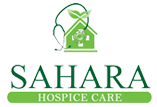Grief Resources for Healthcare Heroes

Healthcare workers can also have a hard time coping with the loss of their patients. Houston Healthcare workers and volunteers are the heart of the health care department and give the overall support a patient needs.
Learn more about the different resources offered for our healthcare providers in coping with grief.
Houston Grief Resources
Many psychiatric hospitals or facilities offer what’s called the “Healing Loss Workshop” this allows many healthcare providers a stable, mental wellbeing for all healthcare providers. There are program facilitators that provide palliative care and extensive care for experiences end of life for patients.
The healing loss workshop is established throughout the United States and has been the most beneficial workshop for all healthcare providers.
Healthcare providers are given leadership roles in making the space around them feel safe knowing that they could face devastating challenges from their patients.
Creating a quiet space for medical staff to take a few moments before surgery or giving bad news it beneficial to give them time to cope better with their own mental health as well.
Few Online Grief Resources
On the internet, you can find many programs supporting this good cause.
PeerRxMed: It is a Free Support Program designed to help the physicians and others in the care team both personally and professionally. On this forum you can address and prevent distress with healthcare buddies.
SAMHSA: SAMHSA stands for Substance Abuse and Mental Health Services Administration. It is a free National Helpline 24/7, 365 days Treatment Referral and Information Service in English and Spanish Language.
Grief healing Discussion: It is Forum Group like PeerRx where healthcare people with same grief experiences share their grief for mutual growth.
Coping methods
How can a healthcare provider cope with the loss of their patients? Healthcare providers have the hardest job, a lot of emotions must be ignored when it comes to deciding a patient’s life expectancy or sudden death decisions.
Doctors, nurses and other healthcare providers need to speak to experienced doctors who have already been through a tough moment of grief and ask how they dealt with it. Everyone is different when it comes to coping, but it could help to talk to someone for mental well-being.
Having self-care can help healthcare providers cope easier when it comes to death. Meditating or seeking counseling could quickly help grief and move on to the next journey as a healthcare provider.
Feeling guilty
A lot of healthcare providers tend to create meaningful relationship with their patient’s overtime. This is where it could become hard for the doctor to let go of a patient once their time comes.
Many times, when a patient dies under the care of the doctor, the doctor or surgeon could feel like it was their fault and could have done better to save their life. Unfortunately, there is not a right or wrong answer on how to cope with a loss of a patient.
Many hospitals train their healthcare providers to be stern and avoid emotion when it comes to death of their patients. They must be able to persist and continue their job regardless of what comes their way.
Letting go of guilt is the hardest steps for a healthcare provider. This is the most common experiences a healthcare provider feels when they couldn’t do enough for their patient. This emotional feeling can create many normal grief symptoms making it harder to cope. Letting go can be the first steps to becoming better.
For more information regarding grief and bereavement support, reach out to us at your preferred time.
Recommended Reading:
SAHARA HOSPICE CARE
140 Eldridge Rd Suite B 1, Sugar Land, TX 77478
Phone: (281) 645-5019
https://saharahospicecare.com//
